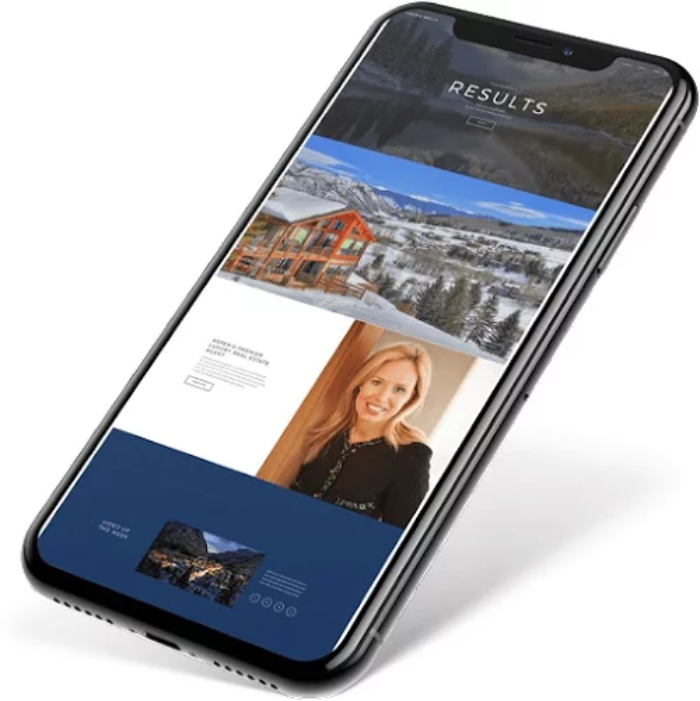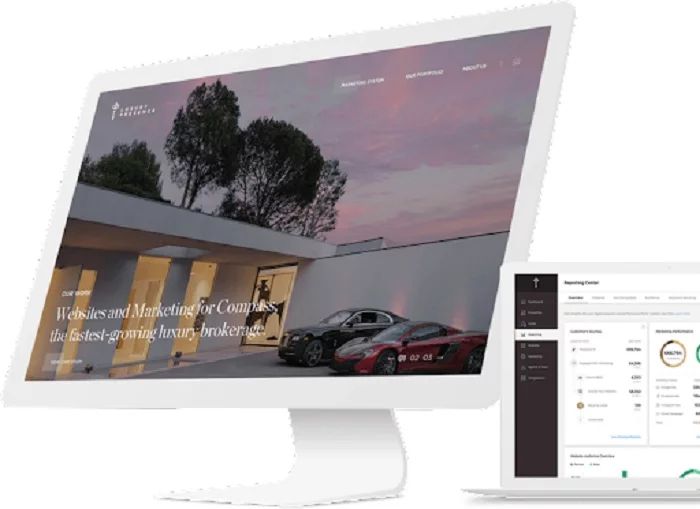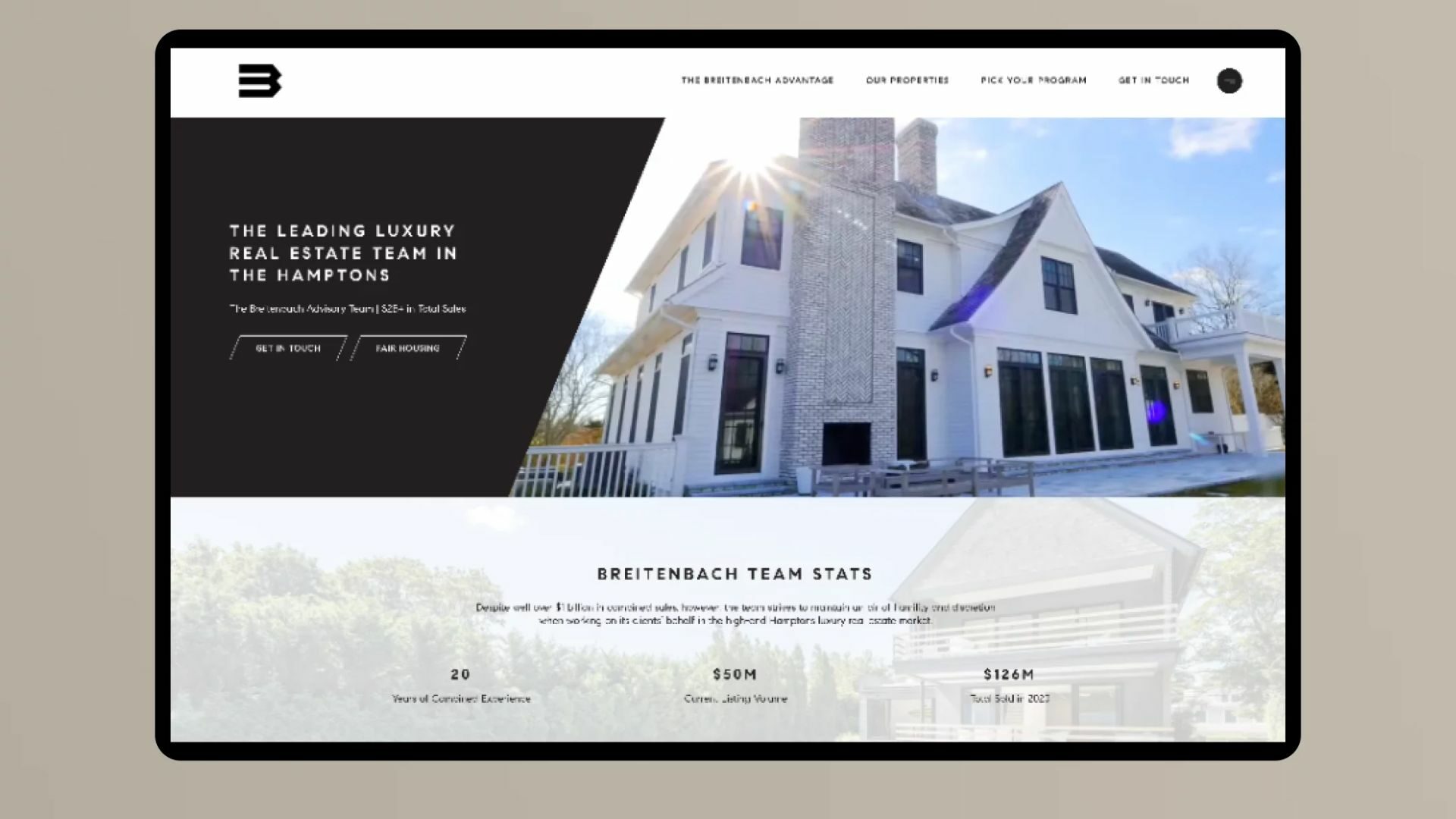An SSL certificate, good branding, and nine other elements your real estate website needs.
As a real estate agent, you need a professional website to grow your business. Those who are looking for properties or who are seeking an agent to help them buy or sell real estate will likely go to your website to find out more about you before they take the next step and call you or schedule a showing.
To ensure that your website is making a good first impression and building trust with your ideal client, it needs to have certain elements.
Here are the most important.
1. A Blog
A blog is one of the best ways to continually update content on your website. Not only will useful blog posts help build trust with those who may want to do business with you, but it will also help increase your SEO rankings if you use the right keywords. Make it a goal to update your blog at least a few times a month so your prospects can see that you are active and committed to providing them up-to-date information.

2. Links to Active Social Media Profiles
Having a strong social media presence shows your potential clients that you are up to date, active in the industry, and committed to connecting with those you work with. To make it easy for your website visitors to connect with you on social media, make sure you add links to each of the platforms you are on.
3. A Privacy Policy
To make sure your website visitors feel confident when sharing their contact information with you, include a privacy policy that states how data from visitors is handled. Make sure to include that all information is kept confidential and that their email and other information will never be shared with or sold to third parties.
4. Trust Badges
Are you a member of the Better Business Bureau, National Association of Realtors, local Chamber of Commerce, or other established organizations? If so, put their logos on your site and state your membership. This will show that you are active in the community and that you are committed to the values and ideals of the organizations you belong to.
5. A Robust Bio
Don’t skimp on the bio portion of your site. The road to trust starts with your clients getting to know who you are and what makes you different from other agents. Include information like where you grew up and went to college, details about your family, your hobbies and interests, and any other details that sets you apart from your competition. Make sure you also have a professional photo (or multiple photos) to help your prospects picture working with you.

6. A Way to Get in Touch with Your Team
Don’t make your prospects search every page of your website to find a phone number or email address. Good websites have prominently located contact forms that are easy for visitors to fill out. If you want to take this to the next level, you can even add a chat feature that allows visitors to reach out and get an answer immediately from one of your team members.
7. Professional Lead Capture Technique
Your website needs to have a way to get contact information from visitors who are interested in working with you. However, it can’t be annoying or compromise the user-friendliness of your website. Consider having a helpful guide or other piece of free content that visitors can download in exchange for giving you their contact information.
8. An SSL Certificate
A Secure Sockets Layer, or SSL Certificate, is a digital certificate that encrypts information that is sent to the server and authenticates the identity of a website. They are needed to keep any user data secure and prevent hackers from creating a fake version of your website. An SSL certificate will also increase the trust of your visitors as they will see that you are committed to keeping their information secure.
9. Easy Navigation and Quick Loading Time
Your prospective clients want to know that working with you will be hassle-free. If your website has long loading times or is difficult for visitors to find what they need, they will get the impression that working with you will also be hard. Put their mind at ease by ensuring your site loads quickly and is easy to navigate with simple menus and buttons and landing pages for specific needs.
10. Good Grammar
Nothing ruins trust like a website full of errors. If you have bad grammar, spelling mistakes, or other errors on your site, visitors will get the impression that you don’t care about the impression you are making. Have your content created by a professional writer and make sure you have a few sets of eyes look at each blog and other pieces of content before they are uploaded to your site.
11. Testimonials
Those who are looking for real estate agents to work with want to know that you have a good track record and have helped others who have similar needs. Reach out to past clients and ask for testimonials that you can share on your website. The best testimonials are short and sincere and feature pictures of the people giving them.
12. Good Branding
Your brand is what visitors will remember most after they leave your website. Make sure your logo is prominently displayed on each page, that colors are consistent throughout the site, and that your brand conveys professionalism and care.
13. Listings and a Good Search Feature
Of course, no real estate site is complete without listings of homes for sale. Make sure the listings on your site have plenty of details and professional images. You also need a good search feature so visitors can easily find the home type, price range, and areas they are interested in when looking for a home.
Are you a new realtor or have you been in business for years and know your website is missing some of the key elements listed above to build trust? Reach out to the professional website designers at Luxury Presence to help you create a site that will grow your business.




